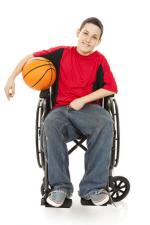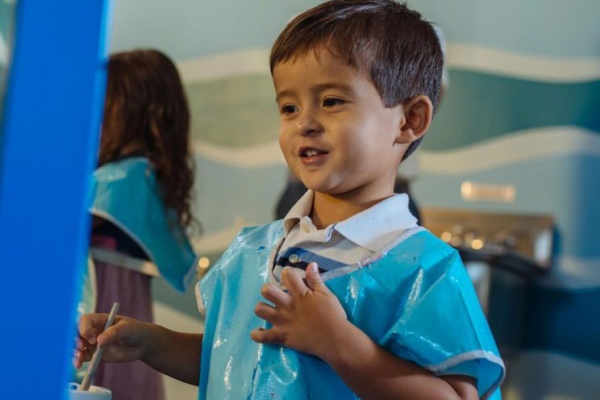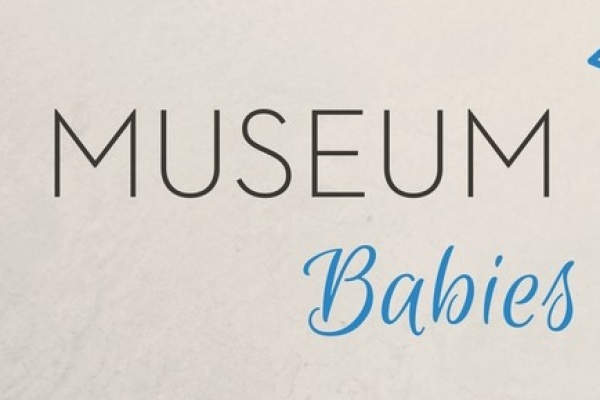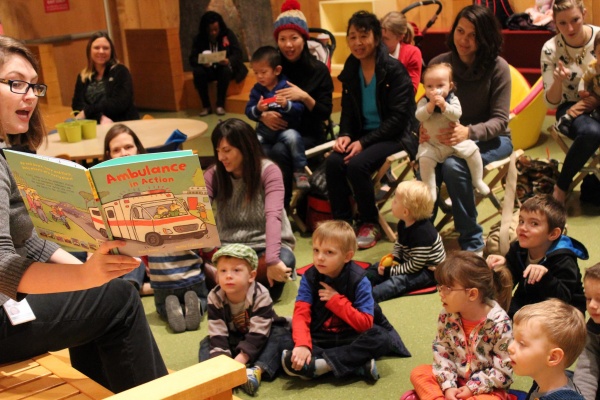
Helping Children Understand Disabilities
I'm blessed to have a very warm-hearted little girl who so far has embraced every one she meets with open arms and a constant barrage of conversation.  But like any other 4-year-old, MJ often has questions regarding the differences in other people, some for which I’m sure I don’t have the best answers. This was especially apparent when we were planning a get-together with a group of friends, one of whom has a little boy whose forearms did not develop while he was in the womb.
But like any other 4-year-old, MJ often has questions regarding the differences in other people, some for which I’m sure I don’t have the best answers. This was especially apparent when we were planning a get-together with a group of friends, one of whom has a little boy whose forearms did not develop while he was in the womb.
I was torn. Should I prepare her for his physical challenge beforehand, or would that just bring unnecessary attention to his disability? Or should I let her questions flow organically after she met him and be ready to answer on the spot?
Turns out, I was overthinking it, like I do with so many other things.
“Less is more when it comes to discussing a disability with a child,” said Colleen Mehan, mother of Grace, a caring, ambitious, boy-crazy high school senior who happens to have Down syndrome. “If a parent overdoes it on disability details, their child will be confused and may worry about their friend who has a disability. Keeping the discussion at a level that is age-appropriate will foster sensitivity in your child and strengthen the friendship.”
The problem is, many parents neglect to answer the questions a child has about a disability out of fear of embarrassment for those involved. But, as we all know, kids are the masters of 20 questions, and brushing off their inquiries about another’s disabilities will cause their line of questioning to snowball and cause unneeded confusion.
Thankfully, Mehan, along with Mark Keeley, vice president of support services for St. Louis Arc, a nonprofit United Way agency that provides support and services to more than 3,000 adults and children with developmental and intellectual disabilities, and their families, throughout the St. Louis metropolitan area, offered some suggestions on opening the lines of communications regarding a child’s disabilities.
Embrace diversity. The differences in others should be celebrated, whether it’s hair color, ethnicity or yes, a disability. Said Keeley, “Parents can talk to their children about how their eyes might be different from Mommy or Daddy’s eyes. How their hair might be blonde when their sister’s is dark, etc. Talk about how each person is unique and special in their own way. Some people walk and some people use a wheelchair for mobility. Children should be taught that differences are not a bad thing, and we should appreciate the differences.”
Help build a friendship. Kids want to meet other kids, regardless of their disabilities, but may be unsure how to approach them. This is an excellent opportunity for parents to intervene. “In the presence of the person with a disability, I would encourage the parent to go over to the individuals and introduce their child,” suggested Keeley. “For example, ‘My daughter, Elizabeth, saw your child and wanted to meet her.’ By doing this, the parents teach their child not to fear the child with a disability, and the person with the disability will likely also be introduced with a name.”
Focus on what one can do, not on what he can’t. For years, Mehan has seen how people jump to conclusions about Grace because of her disability without giving her the chance to prove herself. “Concentrating on ability rather than the disability is first and foremost,” remarked Mehan. “Remember that the little boy/little girl you’re discussing is just like your son/daughter – a child who wants to make friends and play together. If the disability affects speech, gait, appearance, general performance, and your child is questioning it, help your child understand the nature of the disability, but stress the goodness and unique ability of the child with a disability.”
Choose your words with care. Mehan stressed that many words should be avoided. “Certain words – retard, stricken, stupid, dumb and many more – are taboo. In fact, in our house, the ‘S’ word is STUPID; we’d allow appropriate use of the other S word before we’d allow the use of STUPID.” She also pointed me to a great document – Words of Dignity from the Iowa Department of Human Rights – that showcases the appropriate terms to use when talking with someone regarding a disability.
And how did we handle the situation with our daughter when she met her new friend – the sweet little boy with the physical disability?
We didn’t.
She simply introduced herself to the child, enveloped him in a bear hug and immediately asked him to play.
And play they did. No questions asked.
By Nicole Plegge, Lifestyle Blogger for SmartParenting

Metro East mom Nicole Plegge has written for STL Parent for more than 12 years. Besides working as a freelance writer & public relations specialist, and raising two daughters and a husband, Nicole's greatest achievements are finding her misplaced car keys each day and managing to leave the house in a stain-free shirt. Her biggest regret is never being accepted to the Eastland School for Girls. Follow Nicole on Twitter @STLWriterinIL





















